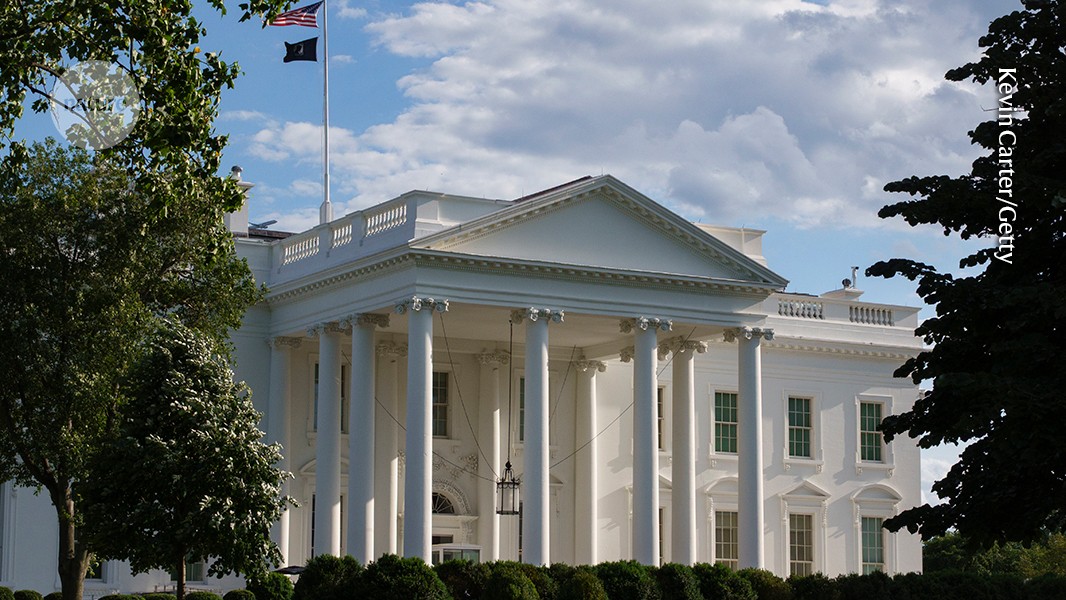Trump’s call for ‘gold standard science’ has prompted an outcry: here’s why

Thousands have signed an open letter against the US president’s latest order, anxious about political interference in science and more

The White House Office of Science and Technology Policy has been tasked with guiding US agencies to develop new scientific-integrity policies.Credit: Kevin Carter/Getty
US President Donald Trump signed an executive order late last week mandating the overhaul of research-integrity policies to ensure that the federal government promotes “gold standard science” that is “transparent, rigorous, and impactful”. But many researchers fear that the order will do the opposite by putting US scientists and science under the thumb of political appointees — and they are mobilizing opposition.
The order, titled “Restoring Gold Standard Science”, states that research-integrity concerns, including high-profile retractions and an inability to reproduce many scientific studies, have caused the public to lose faith in science. It accuses Trump’s predecessor, former president Joe Biden, of misusing scientific evidence while crafting public policies on climate change, public-health guidance during the COVID-19 pandemic and more. The order comes as the Trump administration slashes funding for science across federal agencies and at major US research universities.
Although they agree that breaches of scientific integrity are important to address, researchers who spoke to Nature worry that language in the 23 May order opens the door to political interference in US science.
“It all sounds very non-objectionable, but it’s extremely dangerous” in the details and subtext, says Gretchen Goldman, president of the Union of Concerned Scientists, a science advocacy group based in Cambridge, Massachusetts. The order “steamrolls” longstanding efforts to create a buffer between science and politics, says Goldman, who helped to develop scientific-integrity policies under Biden that the new order revokes. For instance, enforcement of the new research-integrity policies could be left up to political appointees rather than non-partisan career government employees, as required under Biden.
Victoria LaCivita, a spokeswoman for the White House Office of Science and Technology Policy (OSTP), which coordinates science policy across the US government, said to Nature in a statement that the order creates a path to rebuilding trust between the scientific community and the public “through common-sense scientific principles”. She also accused the Biden administration of incorporating “radical woke ideology” into the scientific enterprise by introducing diversity, equity and inclusion programmes. “If that’s not politicizing science, I don’t know what is,” she said.
The latest order has incensed some in the scientific community: nearly 4,900 scientists and others had signed an open letter at the time this story was published arguing that it promotes a “Fool’s Gold” standard for science. “The Executive Order further consolidates political control over the Nation’s scientific infrastructure, co-opting the language of open science to implement a system under which direct presidential appointees are given broad latitude to designate many common and important scientific activities as scientific misconduct, and to penalize those involved accordingly,” the letter says.
Competing policies
During Trump’s first presidency, from 2017 to 2021, researchers and public-policy specialists repeatedly accused his administration of undermining science and censoring government scientists. For instance, scientists at the US Environmental Protection Agency (EPA) were sidelined as the administration sought to weaken environmental and public-health regulations, and hundreds of scientists later reported political interference in a survey. Partially in response, Biden issued an executive order during his first week in office in 2021 calling on some 30 federal agencies to create or update scientific-integrity policies to shield government scientists from political interference.

Michael Kratsios, head of the OSTP, has criticized the scientific community for quashing voices of dissent.Credit: Kent Nishimura/Bloomberg via Getty
Trump’s new executive order revokes those policies while calling for the OSTP to issue guidance within the next 30 days on establishing new ones; federal agencies then have 60 days to develop policies and report back to the OSTP. Among other requirements, the order directs agencies to ensure that their policies “protect employees from efforts to prevent or deter consideration of alternative scientific opinions”. OSTP head Michael Kratsios and other Trump officials have said that scientific groupthink on topics such as climate change and COVID-19 response has squashed valid opinions and caused harm.
One of the main fears among critics of the order is that Trump’s new policies will allow agencies to put politically appointed officials in charge of investigations into allegations of research integrity. That could enable the administration to punish government scientists for failing to meet vague expectations to “transparently acknowledge and document uncertainties” when using data in agency decision-making. “This could be used as a cudgel to punish almost anyone: it’s just frightening,” says one senior government official who has worked on scientific-integrity issues under multiple administrations. The official requested anonymity because they are not authorized to speak to the press.
Emphasizing uncertainty
Enjoying our latest content?
Login or create an account to continue
- Access the most recent journalism from Nature's award-winning team
- Explore the latest features & opinion covering groundbreaking research
or
Sign in or create an accountdoi: https://doi.org/10.1038/d41586-025-01668-x
This story originally appeared on: Nature - Author:Jeff Tollefson


















